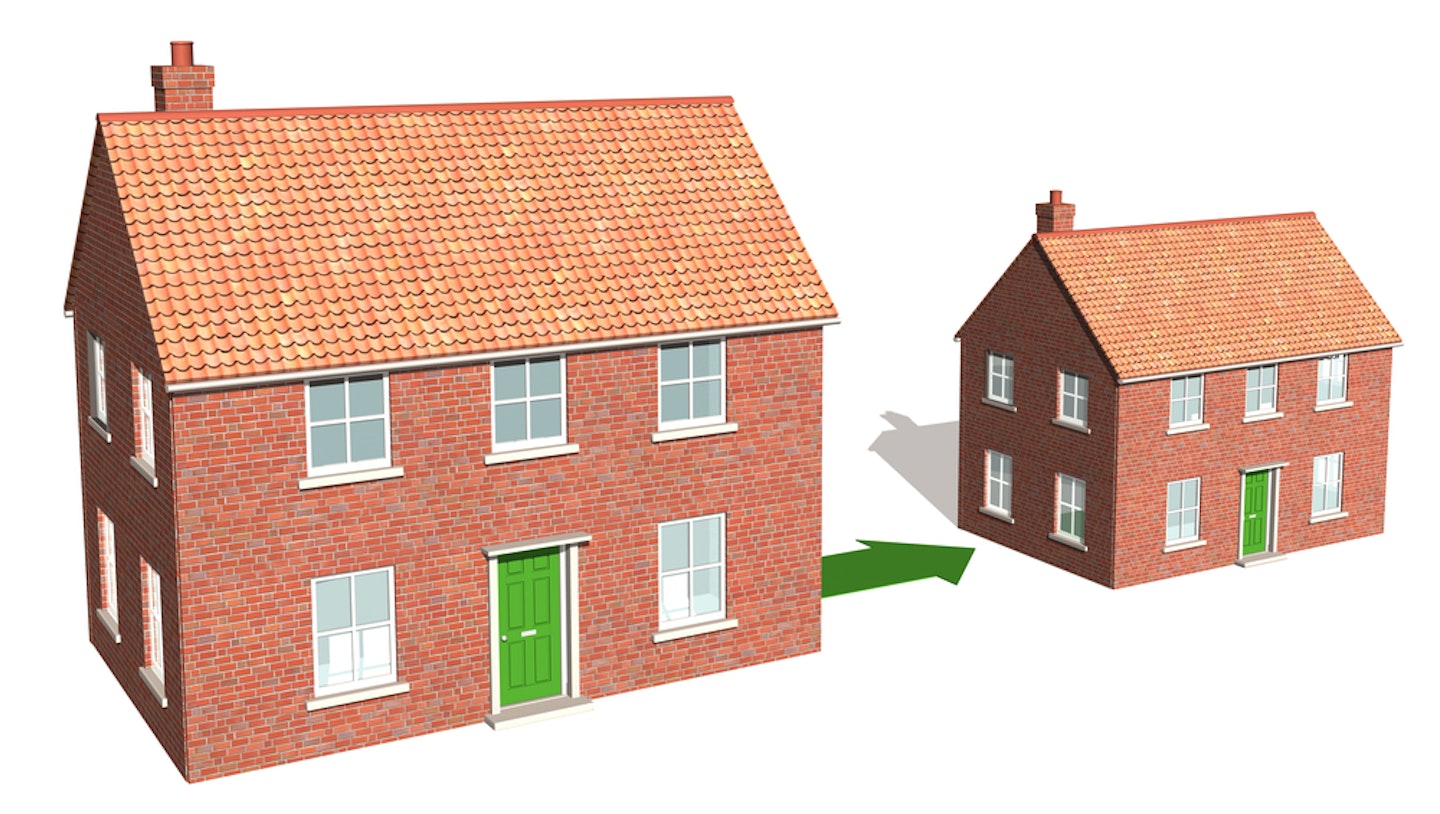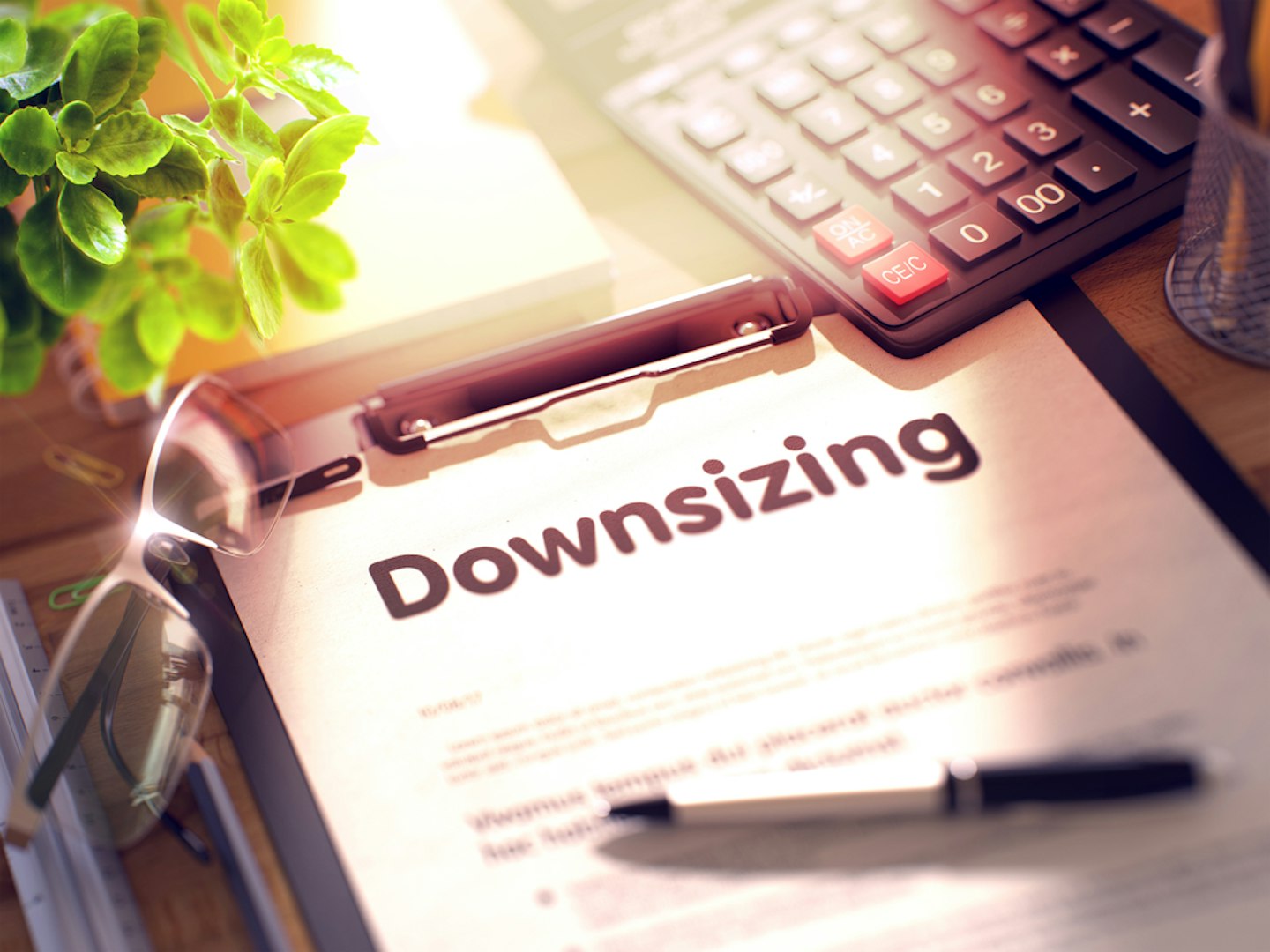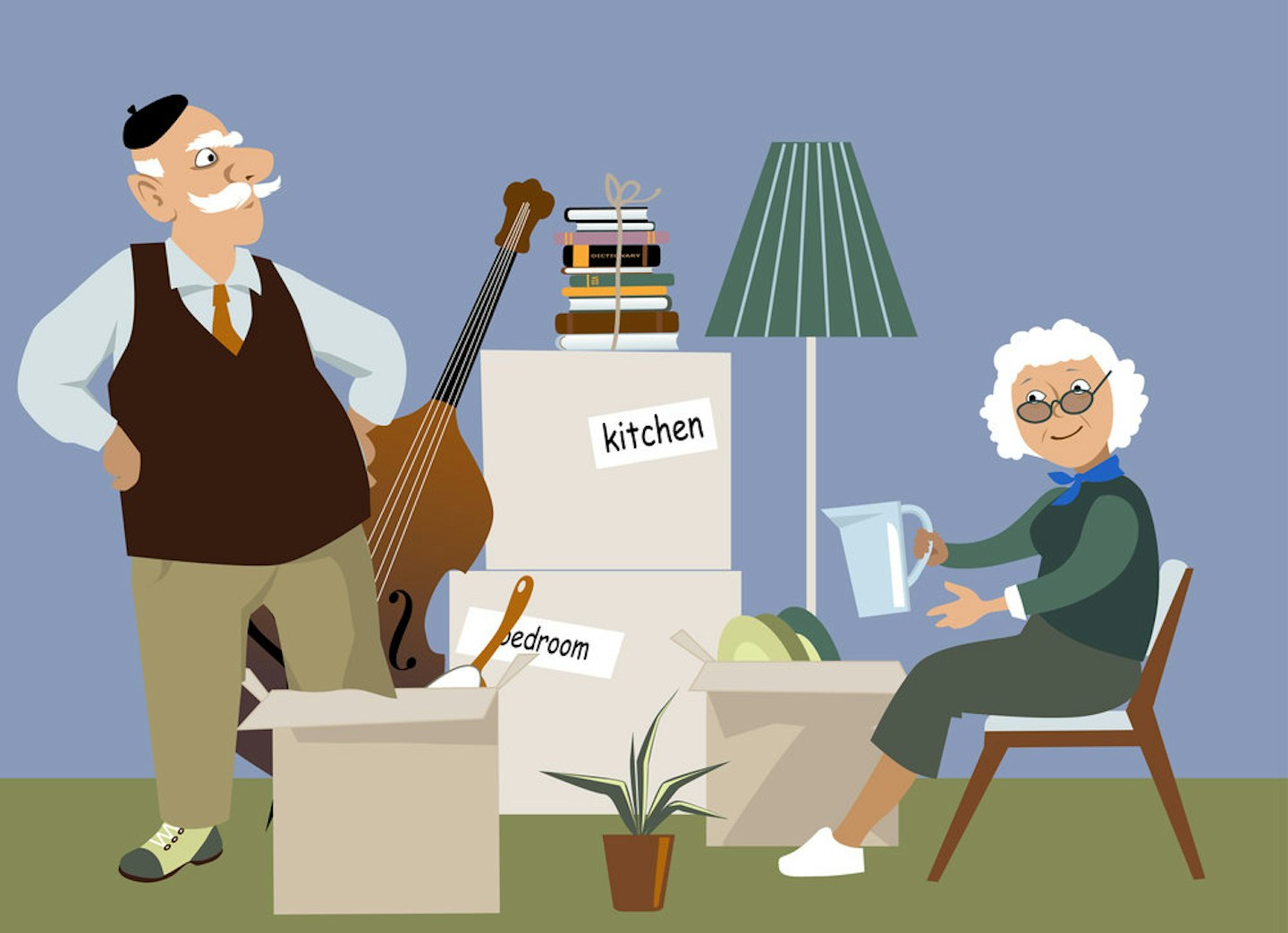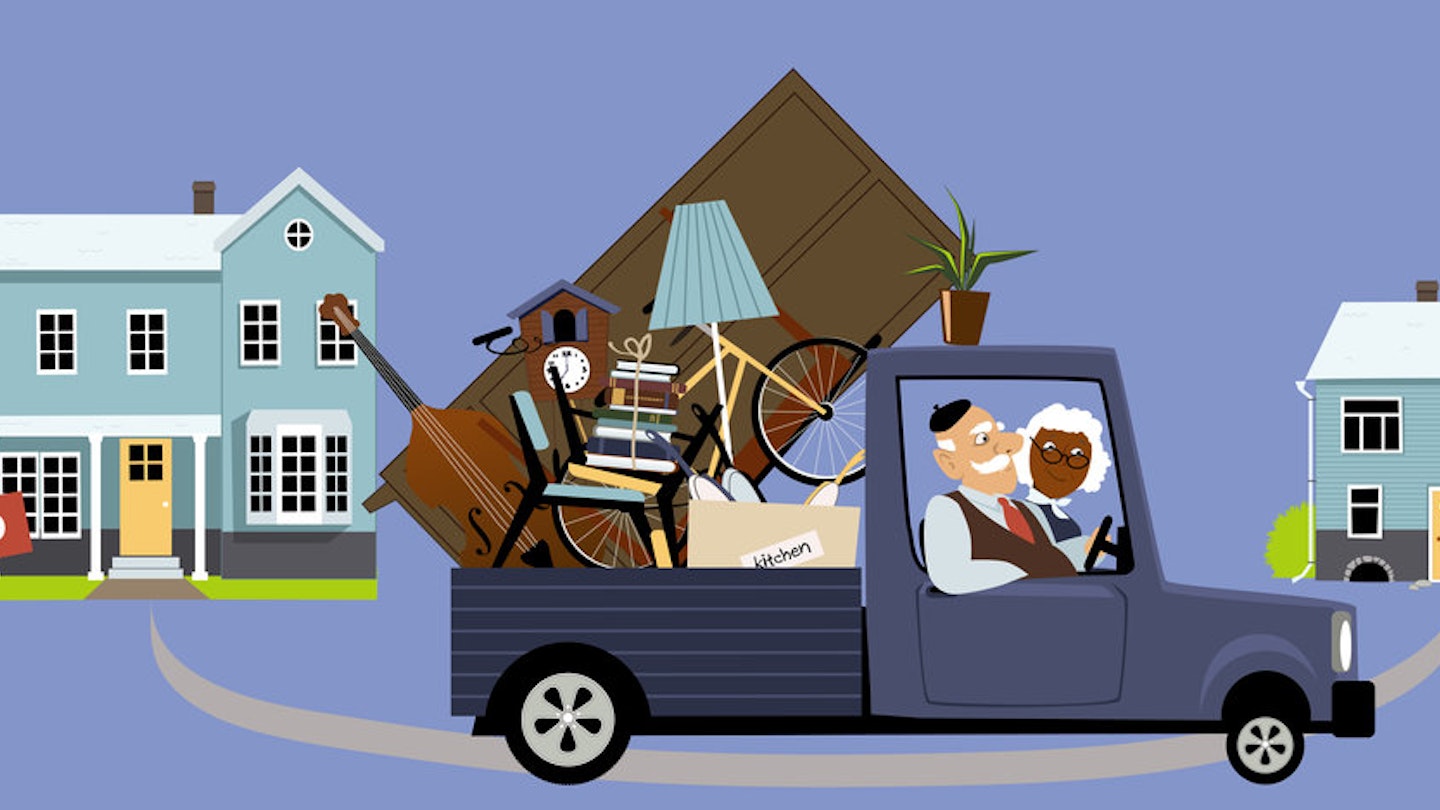If you're considering selling your home and downsizing now you've retired, here's a handy guide to help you through the decision.
Downsizing your home - what's the definition?
Downsizing means – as you might imagine – moving to a smaller home, and is a common choice for retired people once their children have flown the nest.
If you’re prepared to move to a smaller space, stepping down a few rungs on the property ladder could put you in a very comfortable financial positon, especially if you’ve owned your home for a long time.
Almost two thirds (60 per cent) of those of us looking to downsize are tempted by the possibility of topping up our retirement pots, while 48 per cent want a home that’s easier to manage and 21 per cent of us want to cut our bills, according to research from Key Retirement. It becomes all the more tempting when you hear that downsizing releases an average of £115,000, according to estate agency Hamptons International.
Should I downsize?
“Downsizing can be a practical decision,” says James Britton, Partner at Roger Coupe Estate Agents www.rogercoupe.com)). “By choosing to move to a smaller or more suitable home, maintenance and upkeep will cost you less, so you can free up more time to do all the things you always planned for retirement. Emotionally, it’s also easier to make the choice now rather than having to have it made for you further down the line.”
When should I downsize my home?

It’s up to you – and of course downsizing isn’t the only option – but many people choose to downsize when the demands of keeping a large house and garden clean and tidy prove too challenging, or when they want to free up some cash.
Is downsizing worth it?
Reader Rose Edwards downsized four years ago, and hasn’t looked back:
“Aged 72 and after 40 years in my house I decided to downsize when I found the garden too much work to maintain. I sold my three-bedroom bungalow and moved to a two-bedroom apartment on the Devon and Cornwall border. I was surprised that the decision was quite easy to make, and I felt excited to have a good clear out and buy some new bits and pieces for my new home. Now I live on a bus route and have local shops and friendly neighbours. I feel really safe and everything is much more convenient. My apartment is modern, cheaper to run and much warmer than my old house. Plus within a year nearly all of my old neighbours left my old area too, so it was obviously the right decision. I would definitely recommend it.”
How to sell your home when downsizing
Putting your home on the market can be stressful and it comes with its own set of costs.
says Elliot. “Before committing to selling your home you need to work out exactly how much money you want to walk away with, factoring in associated costs including estate agent’s fees, legal costs and stamp duty,” says Elliot Castle, founder of www.webuyanyhome.com. You could save money, sometimes thousands of pounds, by using an online estate agent, but be aware that you often have to pay fees up front, regardless of whether the company manages to sell your property.
Do your research and shop around. “Some online agencies claim to have certain expertise that they don’t actually have,” says Elliot. “Much of the work that traditional estate agencies do is behind the scenes, holding deals together by regularly communicating with the solicitors of both parties. An online seller can’t call a buyer’s lawyer to push along negotiations (only a property professional can do that). So be sure to ask a lot of questions about how online services work before you make a decision.”
Get several valuations and don’t be sucked in by the highest valuation, instead go with the agent who can back up their valuations and give you examples of previous properties that have sold and are similar to yours.

“It’s important to be realistic about the asking price for your home,” says Louisa Fletcher, a property expert for Redrow Homes. “This means researching what similar properties in your area have recently sold for, and taking advice from your estate agent.” While tempting, it’s not a good idea to put your property on the market for a bit more than you think it’s worth, because if it’s overpriced it will stick on the market.
If you’re wondering if your house is being marketed at the right price keep a check on viewings. “The average amount of viewing needed to get an offer is 14,” says Louise. “If after six weeks you’ve not had 14 viewings or an offer you should consider revising the asking price.”
Most downsizers will be selling a family home, so it makes sense to market your home when families are looking to move. “It’s a common misconception that families will be house hunting at the start of the summer holidays,” says Dianne Sprouse, an estate agent at www.yopa.co.uk. “In fact, that’s too late to move into a school catchment area, so most people with children tend to start their search in January or February.”
That said, if you’ve made the decision to move don’t worry about timings too much, the housing market is currently strong and is moving quickly, so if you want to sell you don’t have to wait.
How to make your home sell faster
A few quick jobs and updates could help you get closer to the asking price. “Repainting walls in neutral colours, fitting new carpet into high traffic areas such as the hallway, changing dated taps and replacing anything that’s looking cracked or damaged such as light fittings, can make your home seem instantly more attractive,” says James. “Don’t forget curb appeal either. A tidy front garden is welcoming and homely on arrival so care for the front of your house as much as the inside.”
How to get rid of stuff when downsizing

While downsizing is a great excuse to declutter, it makes sense to do it before your house goes on the market rather than waiting until you’re packing up to leave. “Having a clear out will make your home seem more spacious, which could help potential buyers imagine their furniture in your house more easily,” says James.
Gorgeous pictures of your house are the first thing potential buyers will see, so it’s important to get them right. If you’re selling through an estate agent they will have experience in taking great images, but if you’re going the online agency route you may need to take them yourself.
“Less is more when it comes to staging your home for photographs,” says Dianne. “Clear the surfaces, make beds neatly, take towels out of the bathrooms and remove personal items such as family photos. Take inspiration from home magazines if you’re stuck for ideas.”
Protect your rights when downsizing your home
Ask your solicitor or conveyancer if they offer Residential Abortive Transaction Insurance. For a small premium (around £60-£90) this covers you in the event that your sale or purchase falls through before exchanging. It will pay out the legal and other associated fees you will have incurred and it could help to alleviate some of the stress.
How to cope emotionally with downsizing your home
Moving out of a cherished family home can be a difficult time, and it’s perfectly normal to have mixed emotions about a sale.
“I always encourage people to focus on how their wellbeing will be improved in the future,” says Dianne. For example, struggling to manage household upkeep might leave you feeling overwhelmed or guilty, but moving to a more manageable place should relieve this burden.
You will always have the happy memories of living in your home, even if it’s no longer yours.
Make a day of sorting through your possessions with loved ones – it will probably conjure up some lovely moments from the past that you can laugh or cry about. Why not throw a leaving party with your family or friends to celebrate the times you’ve shared there?
Also, it might seem strange, but starting to refer to it as your ‘property’ rather than your ‘home’ may make it easier to move on.
“Make a memories box or scrapbook of the home you’re leaving,” says Louisa. “Take photos of each of the rooms and close ups of anything really personal – such as measurement marks on the wall to track the height of your children; or scraps of fabric from the curtains you made but need to leave behind. It’s a lovely way to take a little bit of your home with you.”
How to choose a smaller home when downsizing
There’s lots to consider when it comes to buying your new home and it’s important to keep in mind that this is a house for your future. “I’d always encourage you to move somewhere practical,” says David Meachem, of retirement housebuilder McCarthy & Stone. “Don’t let your heart rule your head. That little seaside cottage with the winding stairs probably isn’t going to be suitable in years to come.”
“Research the area you’re interested in to understand what the future may bring,” says Elliot. “What are the crime rates? Are there plans for new rail links or housing developments?” Consider the local amenities you’d like to have access to, whether it’s particular shops, a post office or a doctor within walking distance.
“People often don’t consider the little things they might miss when downsizing,” says Dianne. “Have a think about compromises that will mean your quality of life doesn’t suffer. For example, if you’ll no longer have a garden, try to find a property near a local park; buy a sofa bed for family to stay if you’re losing a spare room. If you always host Christmas, have a look for a nice local restaurant you might be able to book instead.”
Your downsizing checklist
Make sure your new home is right for you by asking yourself these questions
Is there enough space for me to be comfortable?
Is there room for friends and family to come and visit?
Is there enough/too much garden?
Is the layout future proof? (not too many stairs for example)
Is the location still suitable if I’m unable to drive?
Can I walk to my GP?
Are there shops nearby?
Am I close enough to my family and friends?
Can I see myself living here for the next 20 years?
Does the house need work and am I willing to do it?
Can we both be happy here?
Can’t bear the thought of selling your family home? Why not consider equity release as a way of freeing up some cash without having to move. Talk to an expert at Key Retirement on 0808 156 910, or apply for a free Key Retirement guide to equity release from www.yours.co.uk/retirement-services
Read more: How does Help to Buy work?
